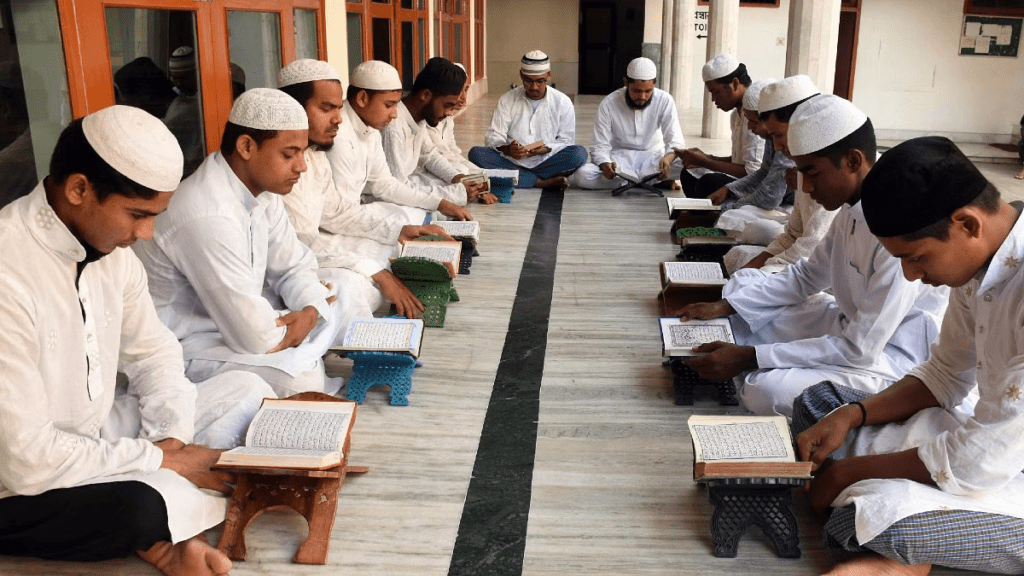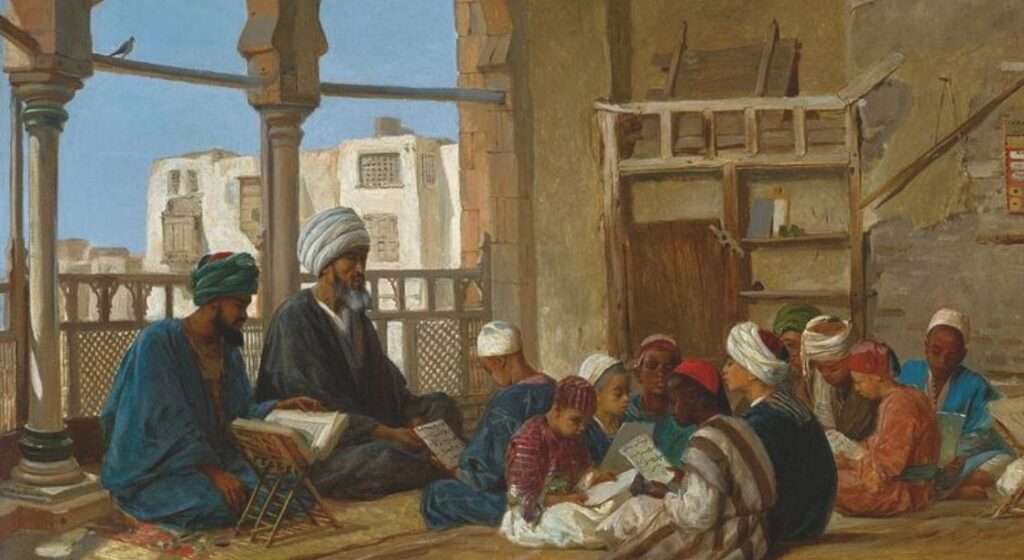
From Illiteracy to Enlightenment: The Inception and Growth of Madrasa Education in Islam
In this article, I will delve into a variety of topics that are both insightful and engaging. We will explore the subjects listed below in detail, offering a comprehensive understanding and in-depth analysis.
Table of Contents
The Origin of Madrasas in Islam
The inception and subsequent growth of Madrasas, as well as the foundation of education, can be traced back to the emergence of Islam. Mohammad (SAW), the Prophet of Islam, was himself illiterate, and he observed that his people were living in a state of ignorance. The initial revelation bestowed upon him pertained to ‘Iqra’, signifying the act of reading. With the divine assistance of God Almighty, the Prophet (SAW) commenced reciting.
Early Dissemination of Islamic Teachings
Following the reception of the initial revelation, the Prophet (SAW) began the informal dissemination of the teachings contained within the revelation to the general populace. The instruction of Islam commenced at ‘Darul Arqam’ in Macca, situated near the Safa Mountain. At this location, Muslims were provided with fundamental knowledge of Islam. Upon relocating to Madina, he provided instruction to Muslims at Suffa, an elevated platform connected to Masjid-e-Nabvi. This can be regarded as the inaugural residential educational institution in Islam. In addition to this, he also founded several madrasas in Madina that were affiliated with different mosques.

Educational Institutions in Early Islamic Society
During that period, there were a small number of relatively unimportant educational institutions in Arabia, primarily managed by Christians and Jews. The society underwent a significant transformation when the Prophet (SAW) initiated the reorganization based on Islamic religion and ideals, marking the beginning of a new era of complete knowledge. As a result, in 632 A.D., when he departed from the world, a widespread network of mosque-cum-madrasas extended from the Northern border of Arabia (Syria) to Yemen and from the shore of the Red Sea in the West to the coast of the Arabian Sea in the East. These institutions taught the Arabic language, elements of Philosophy, and other sciences alongside the Qur’an and the laws it introduced to transform old ways of life into a new, all-encompassing order.
Prominent Early Educational Institutions
Various educational institutions, such as Kuttabs and Darul Qurra, were present everywhere, alongside the renowned “Suffa,” which served as a prime example of commitment, genuineness, and the willingness to sacrifice for the pursuit of knowledge. Notable mosques in the area include:
- Mosque of Hazrat Abu Bakr Siddique (R.A.): An open space where he regularly prayed and recited the Holy Quran.
- Bait-e-Fatima-Bint-e-Khabbab: Another significant mosque in the early Islamic educational system.
- Mosque of Bani Zuraique: Located in the heart of Madina, it was a place for both prayer and education. Hazrat Raafe Bin Malik Zuraique, a member of the Bani Zuraique, a sub-tribe of the Khazraj clan, served as its instructor.
- Quba Mosque: A place where many individuals, following their migration from Macca to Madina, immersed themselves in studying.
The Role of Mosques in Education
The Mosque of Hazrat Abu Bakr Siddique (R.A.) was more than a place of worship; it was also a center for education where he regularly prayed and recited the Holy Quran. Similarly, the Mosque of Bani Zuraique was not just a place of worship but also an educational institution in the heart of Madina, where individuals sought knowledge.
Conclusion: The Legacy of Early Islamic Education
These are the earliest methods of Islamic madrasa education that one can remember and associate with the enlightened history of Islam. From these institutions, we gain insight into the importance of education and the dissemination of information, now commonly referred to as madrasa education in modern times.
About the author
Jamil Hussain is a Ph.D. candidate in English Language Teaching at Aligarh Muslim University. He holds an M.Phil. and various postgraduate and undergraduate degrees. Mr. Hussain has presented at international conferences in Sri Lanka and Bangladesh and contributed to numerous national events in India. His work includes seven publications in renowned journals, such as Scopus-indexed and UGC CARE-listed ones. He has completed British Council teacher training and taught 208 hours of spoken English with the Directorate of Education Delhi, Macmillan Education, and the British Council. His research focuses on "Teaching of English as a Second Language at Select Government Senior Secondary Schools of Barak Valley, Assam."

I just read your article and I find it very informative, very inspiring. I would also like to extend an invitation to you to visit my website Lembaga Pendidikan Islam and we can collaborate with each other.
warm regard.